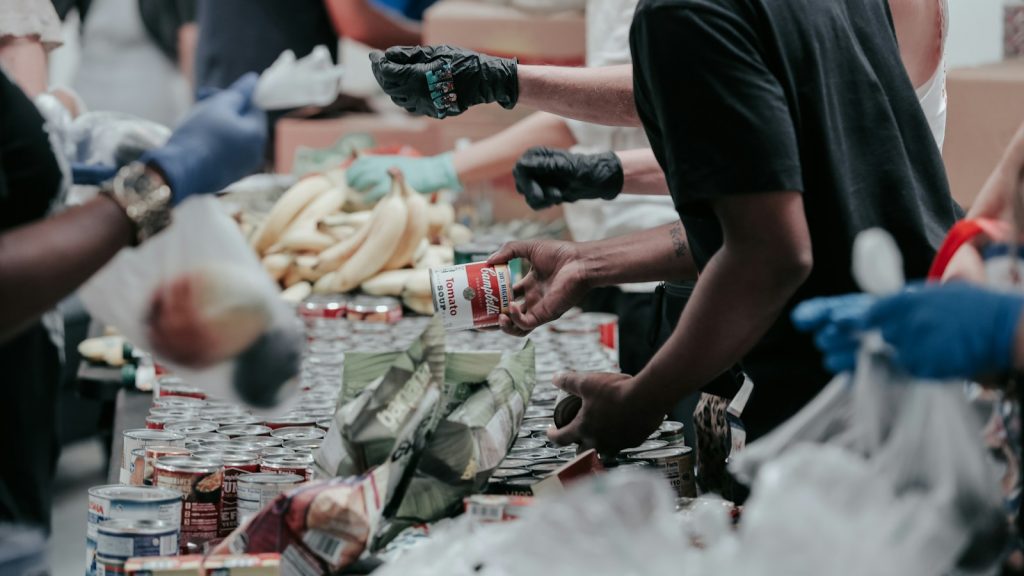Shepherds of Good Hope takes advantage of World Juniors to recover food for those in need

Posted Dec 28, 2024 02:44:46 PM.
Last Updated Dec 28, 2024 02:44:51 PM.
As the IIHF 2025 World Juniors take over Ottawa, the Shepherds of Good Hope are bringing sportsmanship off the ice.
Beginning on Dec. 26, the social service agency has partnered with Lionhearts, a food recovery program, to collect leftover food from venues feeding players, staff and fans, and deliver it to its community kitchen to feed those in need.
Jiating Lai, communications coordinator with the Shepherds, tells CityNews that the idea to target the hockey tournament was inspired by the core values of
sportsmanship—teamwork, community, and inclusivity.
“With hundreds of players and teams, and thousands of eager fans, large events like the junior hockey tournament will generate surplus food,” she says. “This program leverages that opportunity to address food insecurity while minimizing waste. By redistributing professionally prepared meals to those in need, it aligns with the spirit of the tournament and highlights the importance of sustainability and giving back to the community.”
While the exact numbers of food collected and meals served will not be known until the tournament is over, the organization is hoping to reach over a thousand individuals in need, serving several hundred meals per day.
The goal is aspirational but plausible. Data from Second Harvest shows that Canadians waste $3,800 worth of food waste per year, and that’s just individuals. Those numbers do not include businesses like restaurants, hotels and grocery stores.
While Canada’s food waste problem is showing slight improvements, overall the nation wastes more food than the global average. In Canada, around 46 per cent of all food produced ends up in landfills. Worldwide that number is 40 per cent.
“The food service industry is generous. When chefs, volunteers, local organizations, and donors collaborate to address food insecurity, it shows how collective action can turn surplus food into meaningful support,” Lai says. “Each contribution—whether it’s preparing, transporting, or serving meals—reflects a shared commitment to helping others.”
As the food is professionally prepared and ready to eat, the Shepherds are able to serve it as is. This also ensures same-day delivery and maintains food quality and safety standards for those receiving the meals.
The program involves dozens of individuals, including staff, chefs and volunteers, as well as logistics teams who coordinate pickups and deliveries across the city. But this degree of work is not unknown to the Shepherds who run food programs and other homelessness supports throughout the year.
The Shepherds of Good Hope run a community kitchen 365 days, serving hundreds of thousands of meals per year. provides breakfast, lunch and dinner for emergency shelter clients, a public community lunch, and an evening drop-in meal service.
“These programs are made possible through the generous support of volunteers and donations from local grocery stores, food warehouses, schools, churches, corporations, and community members,” Lai says.
She expresses how important of proper nutrition is when it comes to vulnerable populations. Especially as food prices rise, nutritious food helps prevent health issues caused by malnutrition and provides a solid foundation for striving to rebuild one’s life.
“Rising costs make it even harder for those experiencing homelessness or poverty to access quality food, so programs like this not only meet a basic need but also promote equity and dignity in the community,” she says.
And what better way to celebrate the holidays than to gift someone the most valuable gift of all: health.
“The holidays are often a time of reflection, connection, and giving, but for many experiencing homelessness, they can amplify feelings of isolation and hardship. Providing warm, freshly prepared meals during this season brings comfort, a sense of inclusion, and hope,” Lai says. “Ottawa is a giving community that cares and supports people experiencing homelessness. The timing reinforces the community’s care and support, making a profound impact on those who receive it, both physically and emotionally.”
Lai says the Shepherds look forward to see how many meals they can serve through this program and are already thinking about how they can expand programs like this one to more events, fostering a collaboration between the hospitality industry and social services.








